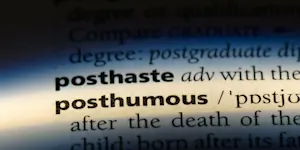What Makes This Word Tick
"Sated" conveys a sense of fulfillment — like when you've enjoyed a sumptuous meal to the point where a single extra bite feels unnecessary. It's often used to describe not just a full belly, but also achieving a deep satisfaction in other desires or goals.
If Sated Were a Person…
Imagine Sated as that alluring friend who never misses a chance to relish life’s pleasures, always content and at ease with a knowing smile. They're a bit like a laid-back hedonist, enjoying life’s luxuries and encouraging others to savor every moment.
How This Word Has Changed Over Time
While the essence of being "sated" has remained steadfast, its use has migrated beyond food to encompass a more metaphorical satisfaction across various desires and cravings. It captures the road led from need to satisfaction — a journey as old as time.
Old Sayings and Proverbs That Use Sated
Proverbs like "enough is as good as a feast" echo the sentiment of being sated, emphasizing the joy of having just the right amount. It’s a timeless reminder that more isn’t necessarily better.
Surprising Facts About Sated
Did you know that "sated" shares roots with "satisfaction"? Both stem from the Latin "satisfacere," meaning "to make enough." Over time, its usage has retained a slightly indulgent flair.
Out and About With This Word
Start listening and you’ll find "sated" popping up in the context of being happily content post-banquet or after a lazy day of leisure. It’s the ultimate word for those who appreciate life’s finer moments without tipping into excess.
Pop Culture Moments Where Sated Was Used
Think of iconic movie scenes where characters lean back, hands on a stuffed stomach, blissfully declaring they "can’t eat another bite." This captures the quintessential moment of being sated and is a staple in countless comedies.
The Word in Literature
"Sated" finds its place in literature that delves into themes of fulfillment and excess. Authors exploring decadence or personal satisfaction often rely on "sated" to drive home the feeling of deeply personal contentment.
Moments in History with Sated
Imagine the grand banquets of the Renaissance, when monarchs and their courtiers must have felt truly sated as they indulged in gastronomic extravaganzas. The word "sated" perfectly encapsulates those moments of historical indulgence.
This Word Around the World
In French, one might say "rassasié" to describe being sated, while in Spanish, "satisfecho" or "saciado" carries the same meaning. Across cultures, the theme remains of reaching a point of fullness or satisfaction.
Where Does It Come From?
"Sated" has Old English and Latin roots, with the Old English "gesæted" and Latin "satis" meaning enough. Its etymology weaves through the tapestry of satisfaction and contentment.
How People Misuse This Word
People sometimes use "sated" when they really mean "tired" or "bored." Its true intent focuses on the idea of fulfillment rather than simple weariness.
Words It’s Often Confused With
Satisfied: While similar, "satisfied" can apply to objectives beyond indulgence.
Full: "Full" is often used for physical fullness but lacks the nuanced satisfaction of "sated."
Content: "Content" implies general happiness or ease, which may not always reach the fullness "sated" conveys.
Additional Synonyms and Antonyms
Synonyms for "sated" include full, satisfied, and gratified. Antonyms include hungry, unsatisfied, and unfulfilled.
Want to Try It Out in a Sentence?
After their holiday feast, everyone leaned back in their chairs, fully sated and ready for a cozy nap by the fireplace.
















